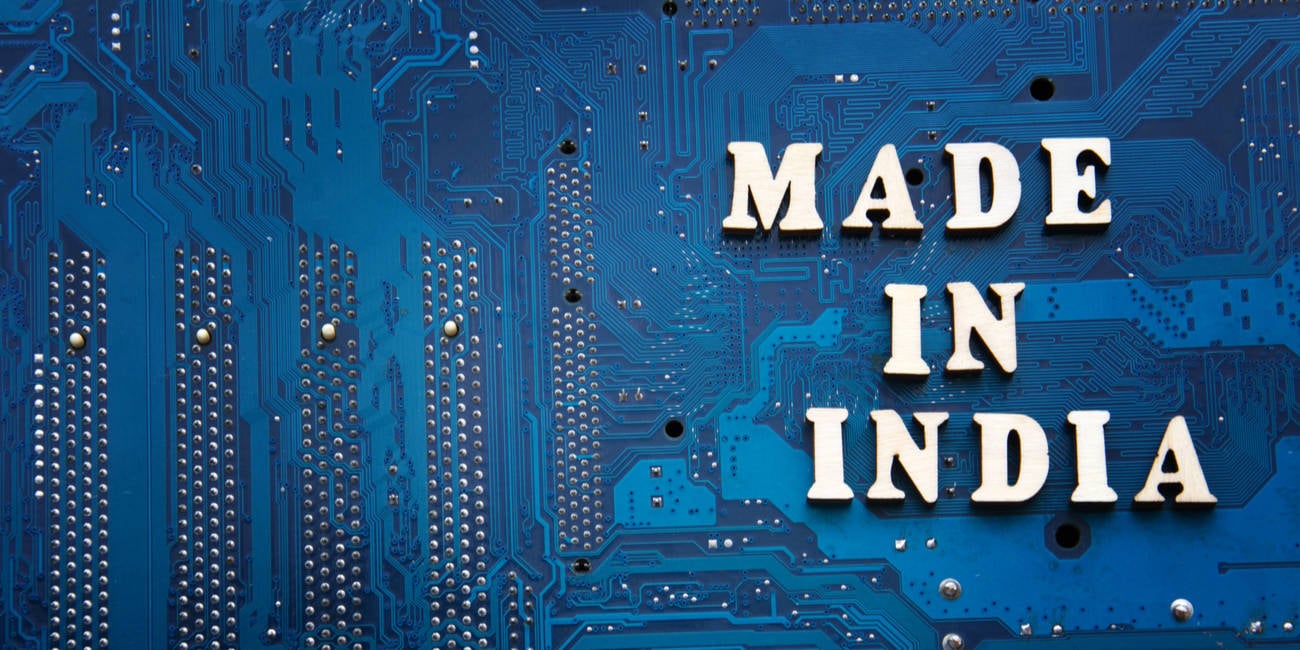India Dangles Billion-dollar Incentive Scheme For Server, PC Makers Willing To Open Up Shop On The Sub-continent

India has added servers, laptops, tablets, and all-in-one PCs to the list of kit it is willing to pay to have made on its soil.
The nation’s cabinet yesterday announced a new production-linked incentive scheme worth just over $US1bn, to be doled out at a rate of between four and one percent to manufacturers that make their kit in India, or perform unspecified value-adding activities.
The scheme aims to land up to five “major global players,” and enhance the fortunes of ten local players.
“Currently, the laptop and tablet demand in India is largely met through imports valued at USD 4.21 billion and USD 0.41 billion respectively in 2019-20,” the government’s announcement states. India wants those numbers to fall.
India’s targets have been identified as six or seven companies that together account for around 70 percent market share. “It is imperative that these companies expand their operations in India and make it a major destination for manufacturing of IT hardware,” the announcement says.
India has already created similar funds for consumer electronics and, just last week, for networking products. All three funds were created in the name of “AtmaNirbhar Bharat”, India’s policy to become self-sufficient in many commodities and technologies. India also hopes to become a semiconductor powerhouse.
The nation’s consumer electronics ambitions are the most visible win, with the likes of Samsung, Apple and Amazon.com all increasing their local manufacturing output.
As the programs are all quite new, evidence they’ve made India an exporter remains scant. However, India clearly sees this is a moment in which it can make a play. As the announcement of the new fund states: “Given the current global scenario, the world of manufacturing is undergoing a paradigm shift. Manufacturing companies across the globe are looking to diversify their manufacturing locations to mitigate the risk involved in depending on a single market.”
Which sounds an awful lot like a reminder to the world that reliance on China caused problems as the COVID-19 pandemic commenced, while ongoing geopolitical tensions mean the Middle Kingdom may be a less reliable source of exports.
Manufacturing companies across the globe are looking to diversify their manufacturing locations to mitigate the risk involved in depending on a single market
India’s incentive schemes are certainly the sort of thing big manufacturers look for: Samsung recently pitched for a $1bn tax break to build a new factory in Texas. But incentives can also go bad, as the US State of Wisconsin found when Foxconn dramatically downscaled a promised factory.
It’s been a busy couple of days in Indian IT policy, as on Tuesday the national government announced a range of reforms aimed at having state governments implement more e-government services under a “National Urban Digital Mission,” backed by a new open data exchange mechanism among different agencies and governments.
The nation will also establish a “SmartCode platform” – essential a government-only app store – in which local and state governments can share and source bespoke apps so that good ideas and code can be freely used across the public sector.
That platform could now be hosted on Google's cloud, as the company this week announced it has won all the necessary approvals to host public sector workloads in India. ®
From Chip War To Cloud War: The Next Frontier In Global Tech Competition
The global chip war, characterized by intense competition among nations and corporations for supremacy in semiconductor ... Read more
The High Stakes Of Tech Regulation: Security Risks And Market Dynamics
The influence of tech giants in the global economy continues to grow, raising crucial questions about how to balance sec... Read more
The Tyranny Of Instagram Interiors: Why It's Time To Break Free From Algorithm-Driven Aesthetics
Instagram has become a dominant force in shaping interior design trends, offering a seemingly endless stream of inspirat... Read more
The Data Crunch In AI: Strategies For Sustainability
Exploring solutions to the imminent exhaustion of internet data for AI training.As the artificial intelligence (AI) indu... Read more
Google Abandons Four-Year Effort To Remove Cookies From Chrome Browser
After four years of dedicated effort, Google has decided to abandon its plan to remove third-party cookies from its Chro... Read more
LinkedIn Embraces AI And Gamification To Drive User Engagement And Revenue
In an effort to tackle slowing revenue growth and enhance user engagement, LinkedIn is turning to artificial intelligenc... Read more

